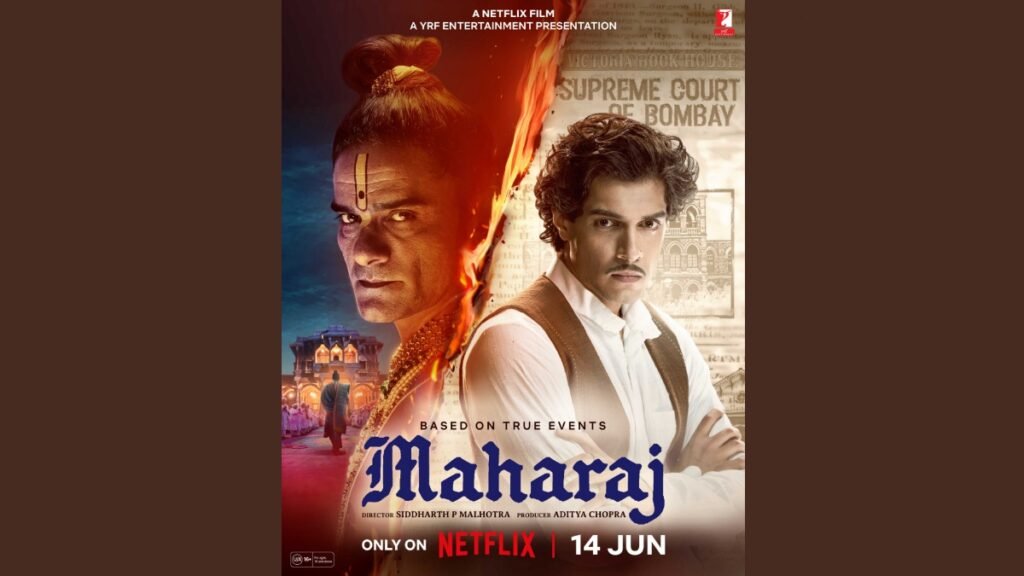
Mumbai: The debut film of Junaid Khan, son of Bollywood icon Aamir Khan, titled ‘Maharaj’, has become the center of a heated controversy even before its release. The Ahmedabad High Court has imposed a ban on the film following a petition by the Hindu Vishwa Parishad, which claims the film offends Hindu religious sentiments.
As Netflix gears up for the premiere of ‘Maharaj’, a vocal segment of social media has erupted with calls for its ban. The hashtags ‘Boycott Netflix’, ‘Ban Maharaj Film’, and ‘Aamir Khan’ have surged across platform ‘X’, reflecting growing discontent among users since Thursday morning.
The film’s narrative, set against the backdrop of the 1862 ‘Maharaj Libel Case’ from India’s pre-independence era, delves into allegations of impropriety against a prominent figure. Directed by Siddharth P Malhotra and produced by Aditya Chopra, ‘Maharaj’ features Jaideep Ahlawat in a pivotal role. In an unconventional move, the film is slated for release on Netflix with minimal promotion, relying solely on the intrigue of posters featuring Jaideep and Junaid, without any teasers or trailers.
Leading the charge for the ban is Vishwa Hindu Parishad’s Sadhvi Prachi, who has taken to social media to express her refusal to “tolerate insult to Sanatan Dharma. Ban Maharaj.” Netflix’s press release highlights the film’s inspiration from the life of journalist and social reformer Karsandas Mulji, known for his advocacy of women’s rights and social reform. The cast also includes Shalini Pandey and Sharvari in notable roles.
Critics of the film allege that it presents a distorted portrayal of Hindu sadhus and the Vallabh sect, potentially misleading Hindu youth away from Sanatan Dharma. They point to the historical context of the British era as a basis for their argument.

The debate intensifies as comparisons are drawn to other religious portrayals in cinema. Citing recent films ’72 Hooren’ and ‘Humare Barah’, some argue that a double standard exists, with calls for bans emerging only when Hindu deities and beliefs are depicted. This comes as the Supreme Court has recently prohibited the release of Annu Kapoor’s ‘Humare Barah’, scheduled for June 14, in response to accusations that it insults the Islamic faith and married Muslim women.
The unfolding drama around ‘Maharaj’ underscores the delicate balance filmmakers must navigate when dealing with religious themes and historical narratives.






















































